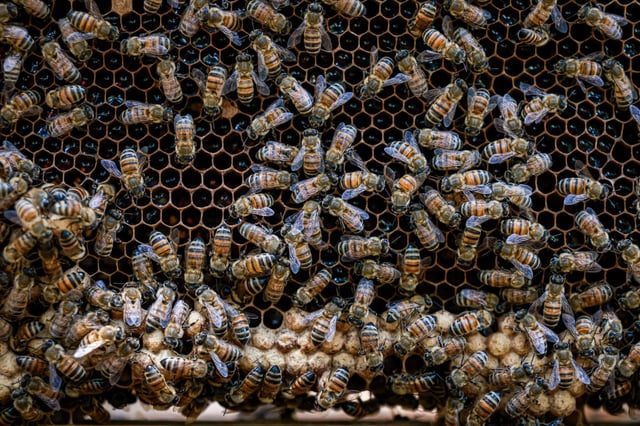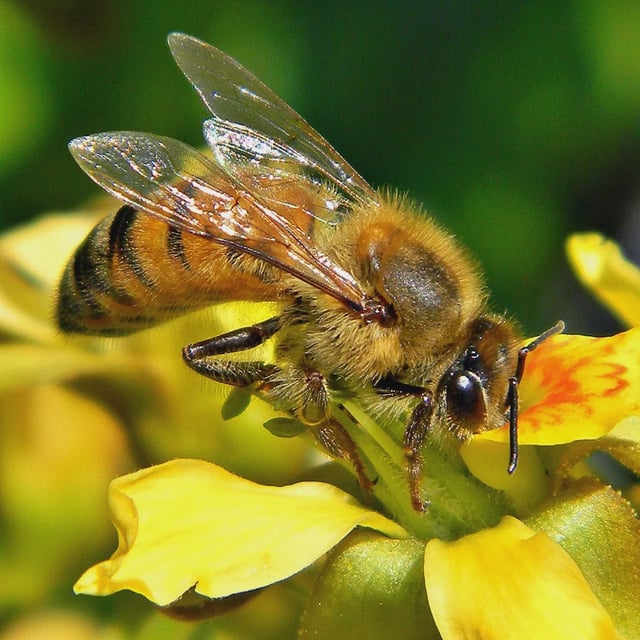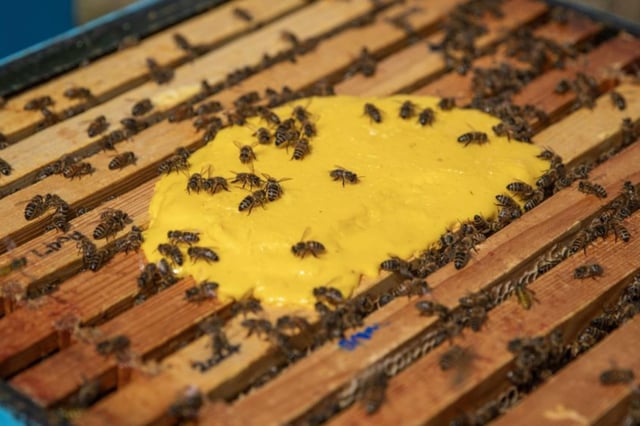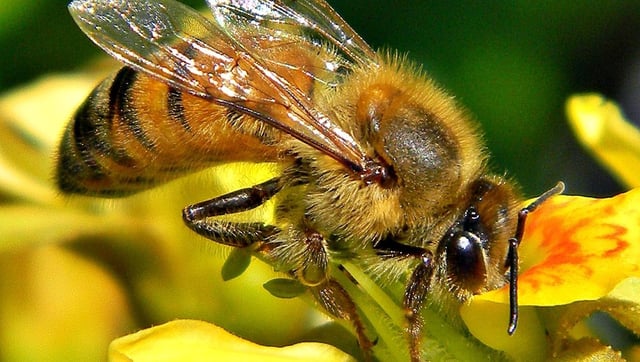Overview
- Oxford-led teams engineered the yeast Yarrowia lipolytica to produce six pollen sterols essential for bee development.
- In three-month enclosed trials, colonies on the enriched diet reared up to 15 times more larvae to the pupal stage than controls.
- Supplemented colonies maintained brood rearing through the 90-day trial, while control colonies stopped by the end of the period.
- Larval sterol profiles in supplemented hives matched those from naturally foraging colonies, indicating biologically relevant uptake.
- Researchers plan larger field tests and regulatory assessments, with availability to farmers reported as possible within about two years if safety and efficacy are confirmed.



